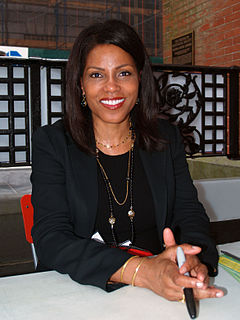A Quote by Manning Marable
There's a hidden history. You see, Malcolm X and [Alex ] Haley collaborated to produce a magnificent narrative about the life of Malcolm X, but the two men had very different motives in coming together.
Related Quotes
Over a period of about year-and-a-half, Malcolm X and [Alex] Haley agreed to work with each other. They met usually after a long business day that Malcolm put in very tired. He would get there at about - either at Haley's apartment or they would meet at then Idyllwild Airport at a hotel, and Malcolm would be debriefed by Haley. He would talk, Haley would take notes.
What Malcolm X did not know is that back in 1962, a collaborator of Alex Haley, fellow named - a journalist named Alfred Balk had approached the F.B.I. regarding an article that he and Haley were writing together for The Saturday Evening Post, and the F.B.I. had an interest in castigating the Nation of Islam, and isolating it from the mainstream of Negro civil rights activity.
Elements within Malcolm's X own entourage, some of them were very angry with some of the changes that had occurred with Malcolm. One source of anger, curiously enough, was that - was the tension between MMI and OAAU, that the MMI, the Muslim Mosque Incorporated, these were women and men who had left the Nation of Islam out of loyalty to Malcolm, but then Malcolm continued to evolve rapidly.
What is striking is that from almost from the very beginning of certainly by September and October of 1963, as the book was being constructed, that [Alex] Haley was vetting - asking questions to the publisher and to the publisher's attorney regarding many of the things that Malcolm X was saying. He was worried that he would not have a book that would have the kind of sting that he wanted.
[Alex Hayley] wanted to show the negative aspects of the N.O.I.'s ideology, Yacub's history, and all of the ramifications of racial separatism that he felt were negative, and that Malcolm, being as charismatic as he was, a very attractive figure, nevertheless, he embodied these kind of negative traits.

























